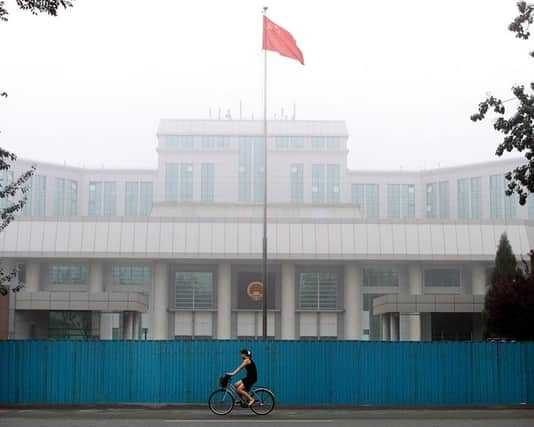China jails 32 as it blames internet for terror wave


Twenty-nine of the 32 were given sentences ranging from four to 15 years, according to state broadcaster CCTV and official newspaper, the Xinjiang Daily.
Escalating unrest in Xinjiang – home to China’s Turkic Muslim Uighur ethnic minority, who want more autonomy from Beijing – has posed a serious challenge to the administration of Communist Party leader Xi Jinping in his first 20 months in power.
Advertisement
Hide AdAdvertisement
Hide AdIn May, a market bombing killed scores of people in Xinjiang’s capital, Urumqi.
The sentencing is part of efforts to erase from the internet material promoting religious warfare or teaching bomb-making, which officials say have fuelled the recent attacks.
State media said virtually all those taking part in the attacks have been exposed to extremist content online.
It said Xinjiang separatists have recently flooded the web with such material, raising a challenge to authorities.
The attacks have prompted Beijing to launch a security crackdown in the region, arresting several hundred people and sentencing scores to prison and, in some cases, to death.
The Xinjiang Daily reported that the defendants used cell phones and the internet to download and spread audio clips and videos that incited separatism and religious extremism.
Using the content, the defendants organised terror groups in which they illegally produced explosives and promoted ethnic hatred. In one case, Alijujiang Siyitiwumaier and Xiadawuti Maimaiti were sentenced to life in prison on charges of organising and leading a terror group in Urumqi that relied on such content, the newspaper said.
They were accused of running illegal “preaching sites” that spread terrorist ideology by exposing participants to literature, audio and video that promoted extremism and separatism, and running physical training and lectures imparting terrorist methods, the report said.
Advertisement
Hide AdAdvertisement
Hide AdThe third defendant sentenced to life imprisonment was convicted of similar charges.
An overseas-based Uighur activist, Dilxat Raxit, said Beijing was using the crackdown on terrorism to further limit the Uighur community’s access to the internet. “Uighurs use the internet to challenge China’s colonial rule,” he said in an e-mail.
“Anyone who uses the internet to disseminate or publish remarks that express discontent with Chinese rule will be subject to allegations and the loss of their freedom.”
The launch of the May campaign, targeting what China calls “violent terrorist activities”, followed a suicide bombing that month that killed 43 people at a market in Urumqi.
In March, 29 people were stabbed to death at a train station in the southwestern city of Kunming.
Around 200 people have died in unrest in Xinjiang in the past year or so, the government says, including 13 people shot dead by police in an attack on a police station in June.